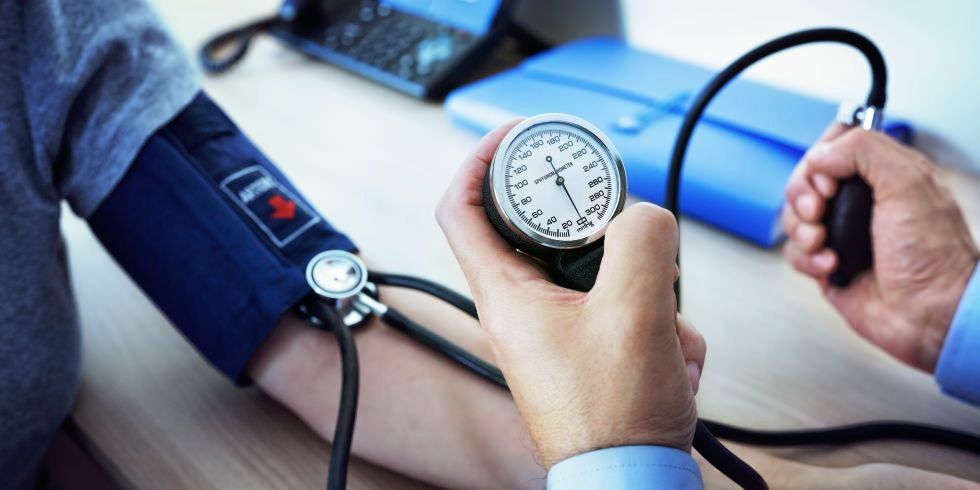If you have been having frequent bouts of dizziness, fainted a few times, developed blurry vision and find it difficult to concentrate, you probably have low blood pressure.
Low blood pressure, also known as hypotension, is normally not considered a worrying factor by many people, while high blood pressure, commonly known as hypertension, is taken much more seriously. Low blood pressure is a condition characterised by a sudden dip in normal blood pressure levels (120/80 mm Hg).
Doctors define hypotension as consistent readings below 90/60 mm Hg, in some cases either of the numbers is in that range or lower. It could be a sign of a serious heart issue, or an endocrine or neurological disorder.
Just as hypertension can be naturally controlled with foods, for hypotension too, a well balanced diet and a few changes in lifestyle can make a big difference.
Here are some ways in which you can naturally control low blood pressure. However, make sure you consult a doctor and take professional help:
Balanced diet
Food items should be high in at least two out of three power minerals: calcium, magnesium and potassium. A balanced diet with these foods in your diet can cut down the risk of stroke and heart attack nearly by half.
“White beans, kiwi, peaches, banana, bell pepper, broccoli, sweet potato, quinoa, avocado, greek yogurt , eggs, olives, tulsi leaves, almonds, munaka, sea salts (within limits) and coffee is what you should include in your diet,” says Priyanka Aashu Singh, nutritionist, Portea Medical, Bangalore.
Stay hydrated
Dehydration is one of the major causes of low blood pressure. In summer months, particularly, make sure you drink at least 8 to 10 glasses of water to keep the body hydrated.
“When you are dehydrated, the body struggles to deliver oxygen and nutrients, as well as remove waste products.
The body cannot store fluid, and thus, it is important to drink adequate water to replace this loss of fluid and maintain a normal blood pressure. Apart from frequent water intake, include coconut water, aam panna, pomegranate juice, bael sharbat as part of your liquid intake as these drinks have the necessary electrolytes to maintain optimum blood pressure,” advises Singh.
Avoid heat exhaustion
“Exposure to heat over time can lead to dehydration which is a major cause of low blood pressure. It is therefore important to avoid venturing out in the day too much, particularly in the summer,” says Dr Haresh Tolia, general physician on Lybrate, Mumbai.
Avoid alcohol
Alcohol in limited quantities is good for the health but prolonged use can lower blood pressure.
“Alcohol being a diuretic can make you lose more water leading to dehydration. Those diagnosed with hypotension should therefore look at tapering the use of alcohol and consume non-alcoholic beverages instead,” explains Dr Tolia.
Resting
Avoid resting for prolonged durations. Change positions slowly. Do not sit down or stand up suddenly as this can make you feel dizzy.
Increase sodium intake
Although excess salt is bad, it is still required by our body in moderate quantities. According to WHO, your daily diet should contain about one teaspoon of added salt besides what is obtained from fruits and vegetables.
Those suffering from low blood pressure can increase their consumption of salt moderately in consultation with an expert. Healthier alternatives are sea salt, rock salt, black salt and Himalayan salt- as mineral content is high in these as compared to white salt.
Increase blood flow
This can be done with the help of compression stockings. They help in better circulation of blood throughout the body. As mentioned earlier, one should also drink adequate quantity of water. The more liquid circulates in the veins, the higher the blood pressure is.
Singh also advises some other things:
Avoid spending long time in steam rooms, hot tubs and saunas.
Change body positions slowly such as getting up from the bed, standing up and so on.
A drop in blood pressure is commonly observed during first few weeks of pregnancy, this condition usually goes away later on in the pregnancy or post delivery. Yet pregnant women should always monitor their blood pressure to eliminate underlying causes for it such as an ectopic pregnancy or anemia.
Professional help
Most importantly, always remember that in case you are displaying signs of low blood pressure; you need to consult the doctor immediately.
Discover more from The Kashmir Monitor
Subscribe to get the latest posts to your email.




